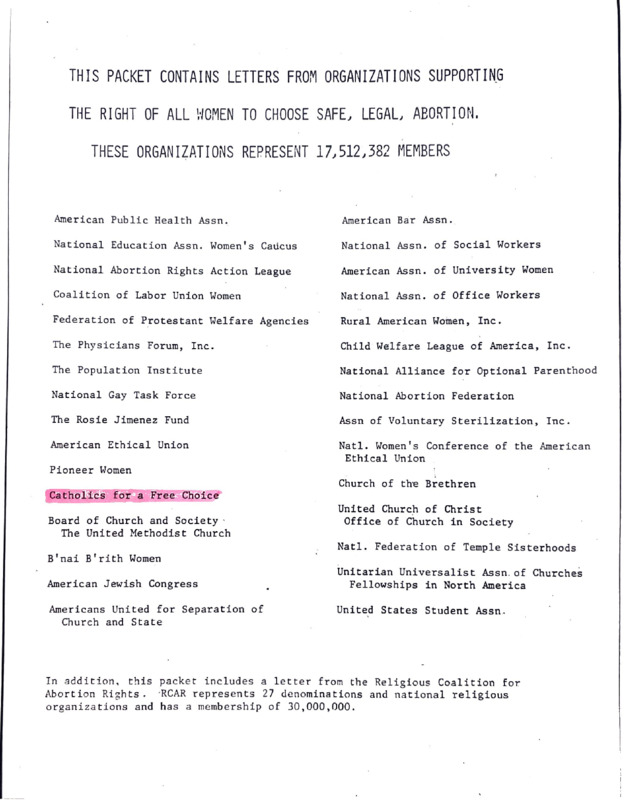Christians and Abortion 1980-1985
Welcome to our Omeka project!
From 1980 to 1985, various states throughout the U.S. started passing what Pensylvannia deemed “Abortion Control Acts.” These laws sought to introduce what the prolife movement would have considered bare bones moral safeguards and what the pro-choice movement would have considered significant hurdles toward women’s ability to exercise their Constitutional right to access abortion. In 1980, in Kentucky, public hospitals were prevented from administering abortions in cases that weren’t explicitly saving the life of the mother. Also in 1980, in William v. Zbaraz, the Supreme Court ruled that states could individually rule what abortion services Medicaid (and other insurance companies) were required to cover, thereby giving more conservative states the ability to deny coverage for abortions. Most famously, in 1982, Pennsylvania passed a law that required a twenty-four hour waiting period for any woman seeking an abortion. This law led to the Supreme Court Case Planned Parenthood v. Casey, which upheld Pennsylvania–and other states’–ability to require waiting periods and other restrictions. Finally, in 1985, Wisconsin passed a law declaring abortion a crime after viability.
We chose the first half of the 1980s as our focus for looking into Episcopal, Lutheran, and Roman Catholic stances on abortion because it marks a turn toward the successes of prolife endeavors to restrict abortions at the state level. With the 1980 election of Ronald Reagan, it also shows a national political shift: Reagan’s embrace of the prolife movement, now known as the “religious right,” ensured Jimmy Carter a single term presidency and created the modern-day Republican coalition. We felt that understanding the difference in three religious traditions (two of which are rarely represented in that “moral majority” or the conversation about religion and abortion) during this particular turning point of the twentieth century abortion debate offered a particular window into the generation of modern abortion politics and theology.
As Christians ourselves coming from varied denominational backgrounds, we each wanted to explore what the churches we come from believe about abortion.
Clare, an Episcopalian, is researching about the Lutheran Church.
Michael, a Lutheran, is researching about the Roman Catholic Church.
and Isabel, a Roman Catholic, is researching about the Episcopal Church.
We each sought to learn more about churches that aren't our own, specifically in terms of what each denomination said about abortion form 1980-1985.
NOW/NARAL Packet (1981)
For further context on all three, we have included an official NOW (“National Organization for Women”)/NARAL (“National Association for the Repeal of Abortion Laws”) packet that was distributed to lawmakers in 1981. This source highlights that Lutheran, Episcopal, and Catholic laity–as well as the clergy in the former two–were involved in pressuring lawmakers to increase access to abortions nationwide. This packet included letters intended to coerce lawmakers to the side of pro-choice advocates, as well as a page indicating the organizations nationwide that supported their stance. While the PDF of this packet that we found was incomplete, it indicates that religious organizations may have added supporting documents or letters to the packet before its distribution.
